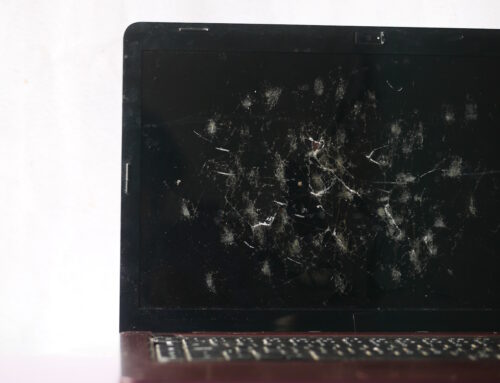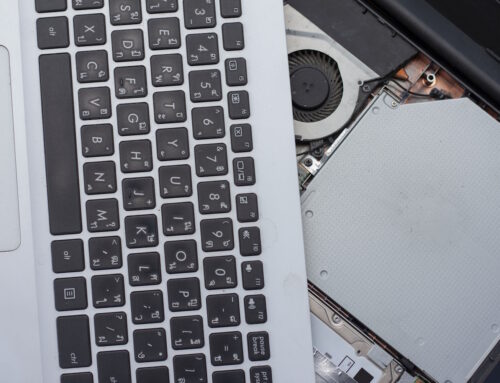How to Stop a Laptop Overheating
An overheating laptop is one of the most common complaints from users. It is not only worrying but can also lead to sudden shutdowns and can cause permanent damage to internal components.
Overheating is sometimes caused by hardware issues, but often it is preventable by taking some simple actions.
In this guide, we will explore some steps you can take to prevent your laptop from overheating.
Is your fan working?
If your laptop is feeling unusually hot, the first thing to do is to find out whether the fans are working.
The job of a laptop fan is to expel air, which will usually make an audible sound. If your laptop is feeling hot, but you cannot hear your fans, then there is most likely a problem.
How noisy is your fan?
When you first turn on your laptop, you would not usually be able to hear the fan since the device will be at its coolest. After a short time, you will generally hear it kick in as it starts to cool the system.
Top-of-the-range laptops often have quieter fans, but you should still be accustomed to their normal working sounds.
It is a good idea to know what your fan typically sounds like so you can spot if it becomes noisier, silent or makes pulsing noises. Significant changes may mean the fan is failing or has stopped working altogether.
If you think it is not working correctly, you should seek advice.
Check the Fan Vents
If the surface of your laptop is feeling hot, the first thing to do is to check the air coming out of the vents.
The fan vents should be blowing out hot air to cool the laptop’s internal parts. It is the primary way that your computer keeps cool.
If you do not feel any air blowing out, your vents are possibly blocked. Dust and grime quickly accumulate in the ducts and can cause a blockage.
Fortunately, it is not difficult to clean the vents. Use a can of compressed air to gently blow in the vents and brush away any excess once it is dislodged.
If cleaning does not solve the problem, it may be time to seek some professional help. They may be able to solve the problem by opening up the laptop casing and cleaning from the inside.
Look out for Errors
You may notice that your laptop has regular restarts or even the dreaded Blue Screen of Death.
This can be caused by the fan failing even though it is still blowing out air. Often if part of the cooling unit detaches or the thermal compound wears out, you will experience overheating.
You can monitor your laptop temperature by using a hardware monitoring program. You probably have a broken fan if it shows excess heat even when your laptop is not being used.
Steps to Prevent Your Laptop from Overheating
If you have decided that your fan is working and the vents are clear, then you can make some simple changes that will help prevent your laptop from overheating.
1. Create Extra Airflow
Laptops require adequate ventilation to help them keep cool. This means creating air space beneath the computer, as this is where some of the grills are located.
There are a few different ways you can help achieve additional airflow.
You can buy a dedicated laptop cooling pad that creates extra ventilation below the device. Some come with integrated fans that operate off a USB port.
Make sure that if you have grills below your laptop, you use a device that blows cool air towards the device rather than sucks air away.
Some cooling devices work passively by absorbing excess heat.
Alternatively, you can use a laptop stand that will allow you to support and tilt your laptop away from your desk surface and create airflow around the device.
One thing that is sure to increase heat is to work with your laptop directly on your lap, as your body heat will increase the temperature of your device, and the grills will be blocked. It is far better to use a laptop on a desk or other hard surface, and even better, at least use a prop such as a small book to raise it away from the surface.
2. Think about Software
The more processes your laptop works on simultaneously, the harder the CPU is forced to work, and the more heat is generated. It means your fans have to work extra hard.
- You can help your laptop to work less by closing down apps you are not using and closing tabs you do not need to be open in your browser. When running intensive graphics apps, try not to multitask.
- You can install a flash block in your browser to prevent videos from running that you do not need.
- You can try reducing your screen’s brightness or the CPU clock speed. In Windows, underclocking or undervolting is done in the BIOS but can also be controlled through software tools.
- Check out energy-saving settings on your device to get a balance between reducing the power used and keeping adequate performance.
Speedfan is a piece of software that monitors your fan speed settings. You can change the settings to instruct your fans to kick in at different temperatures. This can allow you to reduce power consumption.
3. Reduce Ambient Temperature
It may seem obvious, but the hotter the temperature in your room, the hotter your laptop will get. In the summer months, direct sunlight can cause the hardware to expand and cause damage to your battery.
Close blinds and choose a cooler room to work in to ensure you are not creating extra stress on your device’s cooling system.
If you have tried out all of these laptop cooling suggestions and you suspect your laptop is still overheating, you may need to seek some professional help. At Techfident, we offer managed services to companies to ensure that their IT infrastructure works at optimum levels. We also offer a wide range of hardware to prevent your laptops from overheating.




